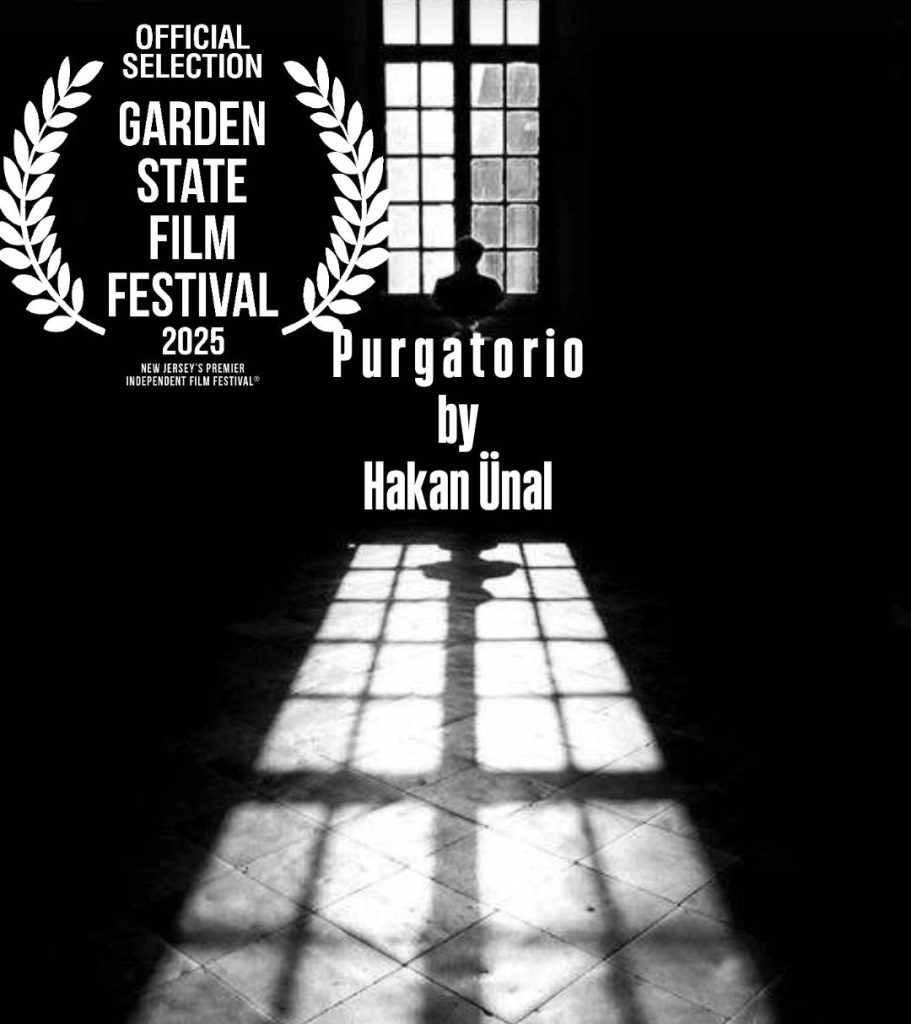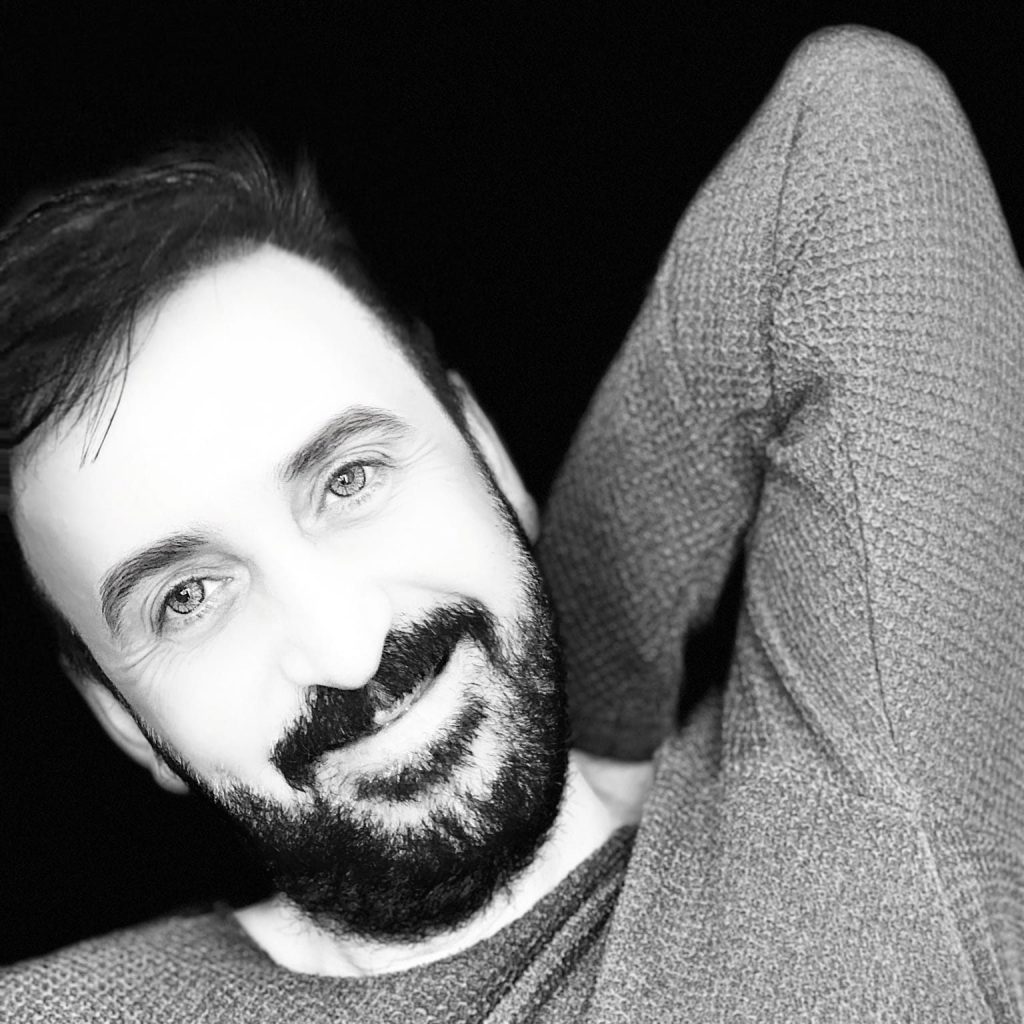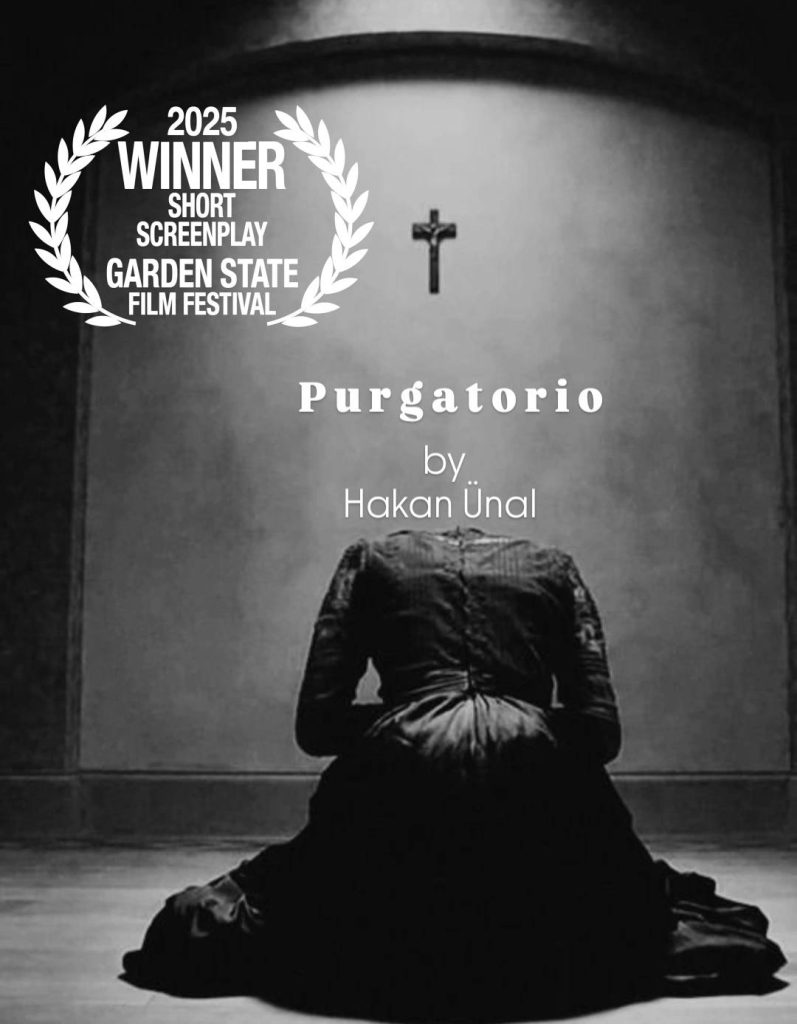
-Who is Hakan Ünal?
Hakan Ünal is an award-winning Turkish screenwriter and director, recognized for his psychologically complex narratives and visually immersive storytelling. His work delves into themes of memory, identity, and suppressed emotions, often exploring the fine line between reality and perception. He began his career by writing short stories before transitioning into screenwriting. His first feature screenplay, Metamorphosis, was shortlisted for the Toronto IFF Talent Development Program in 2019. His short scripts have garnered international acclaim, with The Shell winning First Prize for Best International Screenplay at Flickers’ Rhode Island IFF (Oscar & BAFTA Qualifier) in 2020, and Purgatorio receiving the Grand Prize for Best International Screenplay at the same festival in 2022. Purgatorio also won Best Short Screenplay at the Garden State Film Festival (23rd edition).
Ünal has directed several short films, including Crack in the Wall (2018), Allegoria (2020), and The Shell (2025), each showcasing his distinct ability to craft emotionally resonant and thematically intricate stories. Currently, he is preparing for his feature film HIDDEN-SAKLI, a layered drama that examines hidden desires, family secrets, and the psychological consequences of repression. With a strong foundation in both cinema and literature, Ünal continues to push narrative boundaries, creating thought-provoking films that captivate audiences worldwide.

–Do you remember the exact moment you fell in love with cinema?
“I don’t know if there was a single defining moment, but I do remember the first-time cinema truly captivated me. I was a child, sitting in a dark theatre, completely immersed in a world that felt more real than reality itself. It wasn’t just about watching a story unfold—it was about feeling it, living inside it. I was mesmerized by how images, sounds, and emotions could be woven together to create something so powerful.
As I grew older, I found myself drawn not just to watching films, but to understanding how they were made—how directors crafted atmosphere, how screenwriters structured narratives, how actors embodied their characters. That curiosity led me to storytelling, first through short stories and later through screenwriting and directing.
Cinema, for me, is more than an art form; it’s a way of understanding the world, of exploring the unspoken and the unseen. That fascination has only deepened over time.”
–Tell us about your short screenplay “Purgatorio”
Purgatorio is a psychological drama that explores themes of guilt, redemption, and the weight of unresolved pasts. The story follows a man trapped in a mysterious, liminal space—neither alive nor dead—where he is forced to confront the choices that led him there. As he navigates this purgatorial realm, he encounters figures from his past, each interaction unravelling layers of his psyche and the deep-seated regrets that haunt him.
The story was heavily inspired by Dante Alighieri’s Purgatorio, the second canticle of The Divine Comedy. I was fascinated by Dante’s depiction of purgatory—not just as a place of suffering, but as a journey of self-discovery and transformation. I wanted to reinterpret that concept in a modern, psychological framework, where purgatory becomes a deeply personal space, shaped by the protagonist’s own guilt and subconscious fears.
In Purgatorio, the characters are not just physical beings; they represent different facets of the protagonist’s psyche, as well as the weight of his past actions. The main character finds himself in a purgatorial space, encountering individuals who embody the moral and psychological consequences of his decisions. These figures are symbolic representations of guilt, denial, and regret, each one playing a role in forcing the protagonist to confront the personal demons that brought him to this place.
The connection to Dante’s Purgatorio lies in the structure of the narrative itself. Just as in Dante’s work, where souls undergo a process of purification, my protagonist is forced to face the consequences of his actions in order to move forward. The characters he encounters mirror the various layers of sin and redemption, but the key difference is that they are not static figures. Each character, while representing certain aspects of his past, evolves throughout the story, symbolizing the possibility of change, understanding, and ultimately, redemption.
–Which Director inspires you the most?
There are several directors who have inspired me, but if I had to choose one, it would be Ingmar Bergman. His mastery of psychological depth, minimalist storytelling, and exploration of the human condition resonates deeply with my own approach to filmmaking. Bergman’s ability to craft intimate, complex narratives while delving into existential themes is something I strive for in my own work. Films like Persona and The Seventh Seal have had a profound impact on how I approach character development and visual storytelling.
Another key influence for me is Andrei Tarkovsky, whose films like Stalker and Mirror explore memory, time, and the metaphysical in ways that continue to inspire my work. His unique approach to pacing, symbolism, and the relationship between the inner and outer worlds pushes me to think more deeply about how to convey emotions and themes visually.
These directors, each in their own way, have shaped my understanding of cinema and continue to inspire my journey as a filmmaker.

–What do you dislike about the world and what would you change?
What I dislike most about the world is the persistence of inequality, division, and a lack of empathy. The way people are often reduced to labels or judged based on superficial traits like their background, race, or socioeconomic status, rather than being understood as complex individuals, is something that deeply concerns me. The world often seems to prioritize profit, power, and superficial success over genuine human connection and the well-being of others.
If I could change one thing, it would be to foster a greater sense of empathy and understanding among people. I would aim for a world where people take the time to listen, to truly understand one another’s experiences, and to work toward collective betterment rather than division. In my work, I hope to contribute to this shift by telling stories that challenge assumptions, encourage deeper reflection, and inspire audiences to question the world around them. I believe that cinema has the power to bring people closer together, to break down barriers, and to spark change.
–How do you imagine cinema in 100 years?
In 100 years, I imagine cinema will have evolved in ways we can’t fully predict, but I believe the essence of storytelling will remain constant. Technological advancements will likely continue to reshape the way we experience films—whether through fully immersive virtual reality, holographic projections, or even neural interfaces that allow us to interact with films in real-time. The boundaries between the viewer and the film could become increasingly blurred, creating entirely new forms of interactive and sensory experiences.
However, despite these advances, the core of cinema—the ability to tell stories that connect with people emotionally and intellectually—will remain. I believe the power of human connection and the ability to share our experiences through stories will transcend any technology. In 100 years, filmmakers will likely use new tools and mediums to tell stories, but the need for authentic, compelling narratives will persist.
Cinema could also become more global and inclusive, with diverse voices from all over the world contributing to a more interconnected cinematic landscape. The diversity of experiences and perspectives will enrich the medium and continue to challenge societal norms, much like it does today.
Ultimately, I imagine cinema will continue to push boundaries, to question societal structures, and to reflect on the human condition, regardless of how it’s delivered.
–What is your impression of WILD FILMMAKER?
I find Wild Filmmaker to be a fascinating and timely exploration of where cinema is headed in the post-cinematographic era. It represents a shift in how stories are told and who gets to tell them. In a world where nearly every person with a smartphone has the ability to capture and share stories through images, the boundaries of cinema are expanding in ways we couldn’t have imagined a few decades ago.
I believe that Wild Filmmaker embraces the democratization of storytelling, where the audience no longer just consumes content but becomes a creator of content. With the power of the internet, these stories can go viral and reach audiences on a universal scale, changing the very fabric of what we consider ‘cinema’.
I also appreciate how Wild Filmmaker acknowledges the evolution of art and audience awareness. Just as we once saw the circus as entertainment, only to evolve into a more compassionate understanding of animals’ rights, cinema too is undergoing a transformation. It’s becoming a more inclusive space where everyone can contribute and engage in conversations about social change, representation, and human experience.
The respect for cinema’s rich history, from the works of Stanley Kubrick to Federico Fellini, while also acknowledging new ways of storytelling, resonates with me deeply. It shows a balance of honouring the past while embracing the future. As a filmmaker, I appreciate this forward-thinking approach and look forward to seeing how this evolution will make cinema more accessible, diverse, and meaningful.

